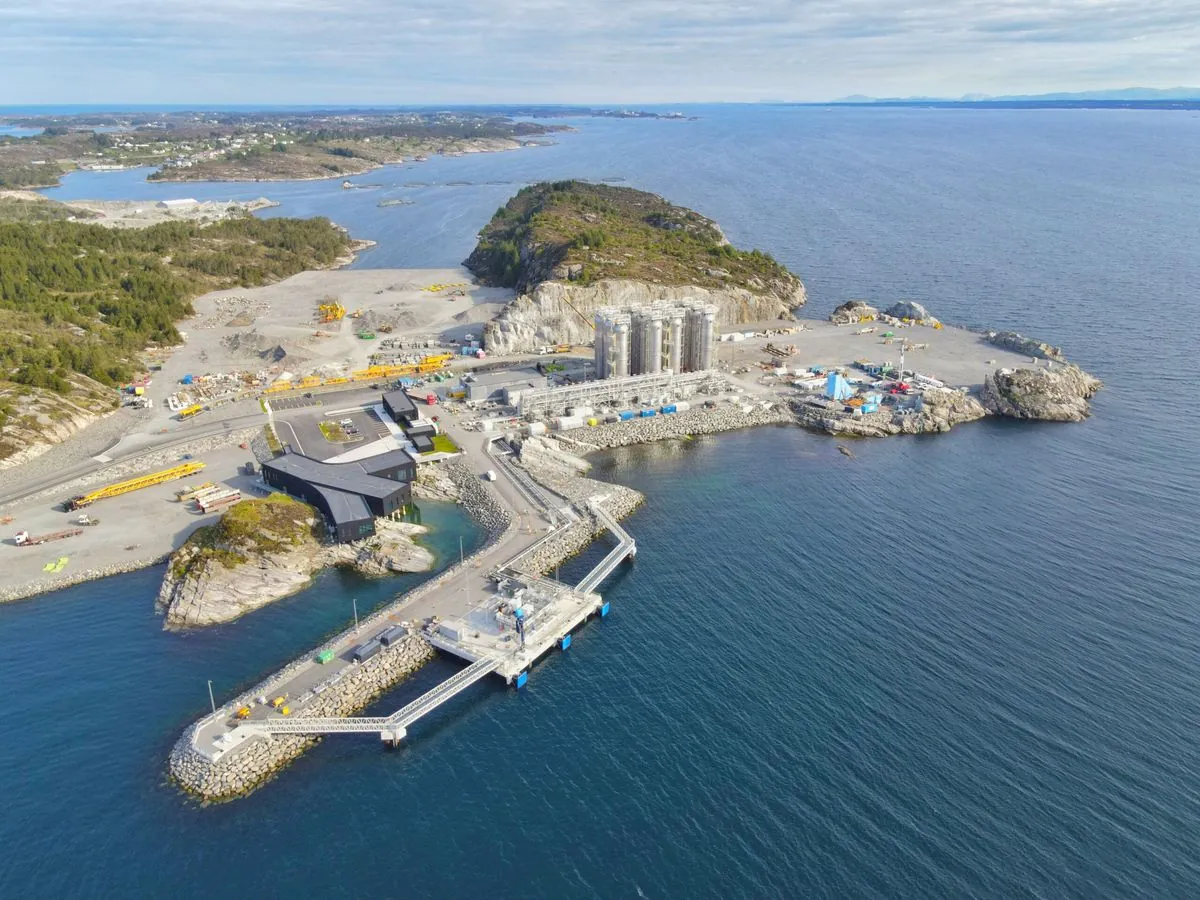In a significant development for carbon capture and storage (CCS) technology, Shell, Equinor, and TotalEnergies have announced the completion of their Northern Lights CO2 storage project on Norway's west coast. The facility is now prepared to receive carbon dioxide, with initial deliveries anticipated in 2025.
The Northern Lights project is a crucial component of Norway's Longship initiative, launched in 2020 as part of the country's efforts to reduce greenhouse gas emissions. Norway, the world's third-largest exporter of natural gas, aims to cut its emissions by 50-55% by 2030 and achieve carbon neutrality by 2050.
Tim Heijn, managing director of the joint venture, emphasized the project's importance, stating, > "Today we achieved an important milestone on our journey to demonstrate CCS as a viable option to help achieve climate goals."
[[Tim Heijn, Managing Director of Northern Lights]]
The storage facility consists of 12 metal tanks onshore, capable of temporarily storing 7,500 cubic meters of liquefied CO2. From there, the CO2 is transported via a 110-kilometer pipeline for permanent storage in a rock formation 2,600 meters below sea level. This innovative approach builds on Norway's long history with CCS technology, which dates back to the early 1990s.
In its initial phase, Northern Lights can inject 37.5 million metric tons of CO2 over a 25-year period, equating to 1.5 million tons annually. The project partners have ambitious plans for expansion, with a second phase targeting an additional 3.5 million tons per year. This scalability is crucial, considering that Norway's CO2 storage potential is estimated to be over 80 billion tons.
The first CO2 delivery to Northern Lights will originate from a capture facility at the Brevik cement plant in southern Norway, owned by Heidelberg Materials. The cement industry is a significant contributor to global CO2 emissions, accounting for approximately 8% of the total. Heidelberg Materials, one of the world's largest building materials companies, plans to complete its capture facility by the end of 2024, followed by a testing period.
Northern Lights has also secured agreements to transport and store CO2 for Yara, the world's largest fertilizer company by revenue, and Ørsted, Denmark's largest energy company. These partnerships are set to commence in 2025 and 2026, respectively, demonstrating the growing interest in CCS technology across various industries.
The completion of the Northern Lights project marks a significant milestone in Norway's journey towards sustainable energy practices. The country, which has been a pioneer in electric vehicle adoption and aims to end sales of fossil fuel-powered cars by 2025, continues to lead in environmental initiatives. With almost all of its electricity production coming from renewable sources, Norway is well-positioned to showcase the potential of CCS in achieving climate goals.
As the world watches the progress of Northern Lights, it's worth noting that the concept of carbon capture and storage was first proposed in 1977. Since then, Norway has been at the forefront of CCS development, with its Sleipner gas field injecting CO2 into a saline aquifer since 1996. The success of Northern Lights could pave the way for similar projects globally, offering a crucial tool in the fight against climate change.
